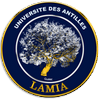Two-phase energy transport modeling and Intelligent route mapping.
The oldest and most widely used industrial method for heat transfer enhancement is nucleate boiling. This two-phase phenomenon exploits an energy transport mechanism by way of heat of vaporisation. There exists extensive research into the modeling of nucleate boiling due to efforts to improve heat transfer predictions and the efficiency of industrial power plants. This talk presents a summary of how to model the mass and energy evolution of nucleate boiling by way the Capillary equation. More specifically, the Capillary equation’s numerical solution, which stems from an energy balance known as the Young-Laplace equation, provides an infinite number of solutions. A method to select the physically viable solution is therefore necessary and a practical solution to this problem is presented. Furthermore, a refinement of the Capillary Equation that accounts for external fields, such as an electrohydrodynamic stress tensor, and limitations in Digital image processing are also discussed. This talk finishes with a presentation of a new collaborative research project between the UQ and the UA that investigates the use of Artificial Intelligence when mapping climbing routes.
